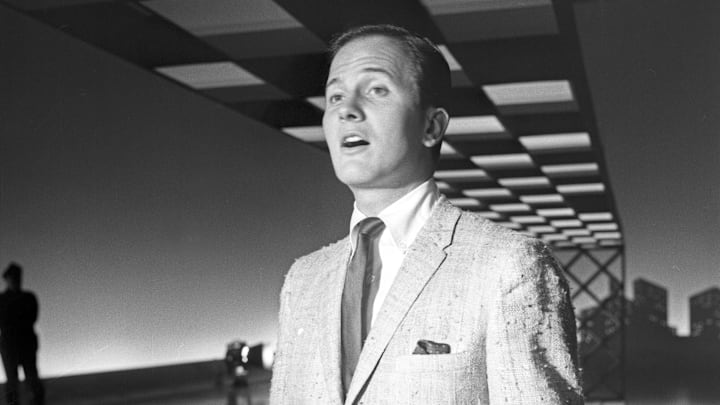10. 'IF YOU WANT TO BE HAPPY" - Jimmy Soul (1962)
David Soul (no relation) scored in the bottom five on my worst 1970s number ones, so I suppose this confers bragging rights onto Jimmy when Soul-singers get together. If you ignore the lyrics, this is a mildly infectious tune whose biggest crime is the redundancy of that melody. But that’s a trademark of plenty of subpar hits.
This one has an adequate little sax solo in the middle, but the production seems so concerned with creating a happy, party atmosphere that it is loaded up with band members chirping away in the background, including during a silly little spoken word “dialogue” moment toward the end.
Then you consider the lyrics. “If you wanna be happy for the rest of your life – Never make a pretty woman your wife – So in my personal point of view – Get an ugly girl to marry you.” And, not for nothing, the ugly girl has to be able to cook. You’d think pop music couldn’t get much more condescending than this. You’d be wrong. At least Jimmy makes it clear that this is his “personal point of view” and does not attempt to impose it upon society at large. By today’s standard, that’s downright progressive.
9. “WINCHESTER CATHEDRAL” – The New Vaudeville Band (1966)
“Winchester Cathedral” is barely over two minutes long, and for the first half, it’s merely a negligible music hall instrumental. You may find it sweet throwback or silly tripe. It’s kind of both. Then the vocal begins.
John Carter, who actually sang background on the Who’s “I Can’t Explain” a year earlier, serves up an exaggerated accent that was designed to mimic crooners from the pre-war years. There’s a reason why that style of singing was no longer in fashion by the ‘60s.
Had he played it straight, it may not have been quite as annoying, but the contrivance in the sound makes it clear that the entire song is mocking this type of music. Frank Sinatra recorded the song later that year and showed what a real singer could do with it. It’s a straight version – nothing particularly special, but way better than the Vaudevillians.
